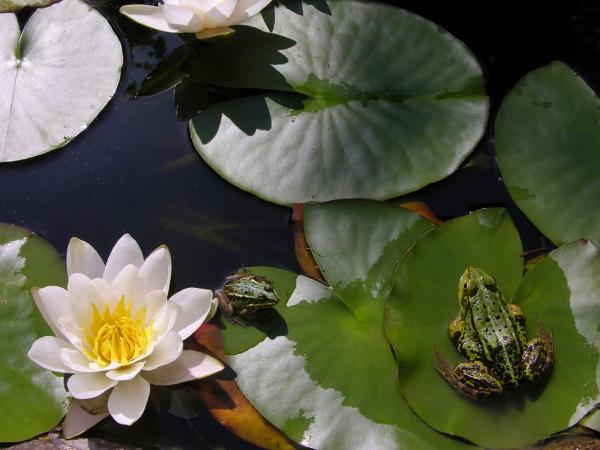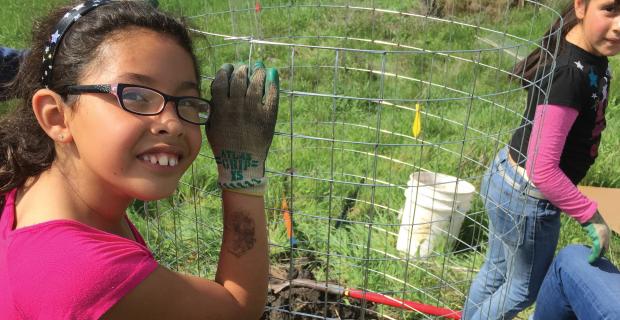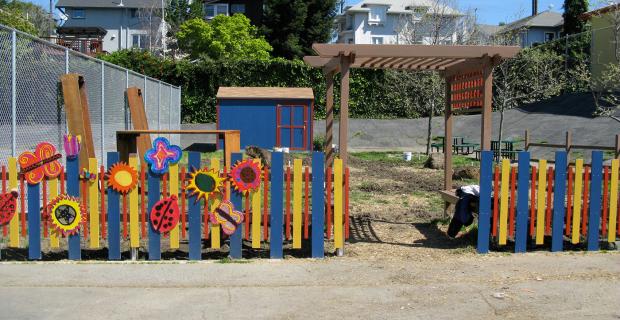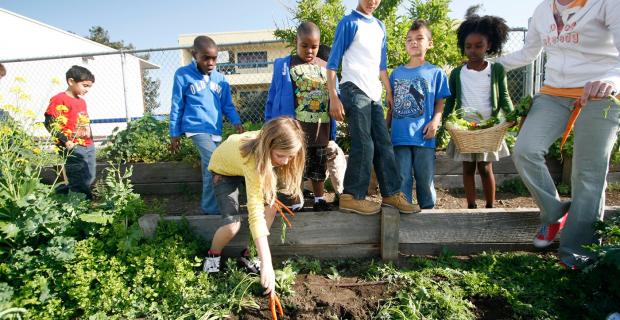Immersion in the Natural World

Regular and frequent outings into the natural world — whether a school garden, an on-campus habitat, a nearby park, or even the school landscaping — provide rich opportunities for learning.
Through immersion in the natural world, children can discover and experience nature's basic patterns. They experience events they would never see in the classroom. Instead of reading about ecological processes like the web of life, cycles of matter, and the flow of energy, they encounter them in the rich, messy ways they actually occur.
Children also begin to understand nature's rhythms and the time scales at which natural events occur. Planting and harvesting a garden enables them to see seasonal changes. Watching a meadow they have restored come back to life gives them a sense of the longer-term transformations.
Students who learn nature's principles in gardens and other natural settings have been shown to score better in creative thinking and problem solving, science, and a variety of other academic subjects. They appreciate the importance of things like safe water and healthy soil, and work to conserve them (Scott P. Lewis, "Uses of Active Plant-Based Learning in K–12 Educational Settings").




